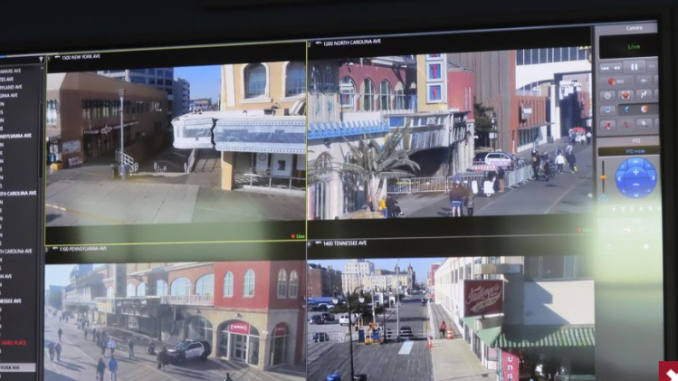
OPINION:
According to the FBI, you may be an anti-government extremist if you’ve:
a) purchased a Bible or other religious materials,
b) used terms like “MAGA” and “Trump,”
c) shopped at Dick’s Sporting Goods, Cabela’s, or Bass Pro Shops,
d) purchased tickets to travel by bus, cars, or plane,
e) all of the above.
In fact, if you selected any of those options in recent years, you’re probably already on a government watchlist.
That’s how broadly the government’s net is being cast in its pursuit of domestic extremists.
We’re all fair game now, easy targets for inclusion on some FBI watch list or another.
{snip}
Clearly, you don’t have to do anything illegal.
You don’t even have to challenge the government’s authority.
Frankly, you don’t even have to care about politics or know anything about your rights.
All you really need to do in order to be tagged as a suspicious character, flagged for surveillance, and eventually placed on a government watch list is live in the United States.
This is how easy it is to run afoul of the government’s many red flags.
In fact, all you need to do these days to end up on a government watch list or be subjected to heightened scrutiny is use certain trigger words (like cloud, pork and pirates), surf the internet, communicate using a cell phone, limp or stutter, drive a car, stay at a hotel, attend a political rally, express yourself on social media, appear mentally ill, serve in the military, disagree with a law enforcement official, call in sick to work, purchase materials at a hardware store, take flying or boating lessons, appear suspicious, appear confused or nervous,
{snip}
We’re all presumed guilty until proven innocent now.
It’s just a matter of time before you find yourself wrongly accused, investigated and confronted by police based on a data-driven algorithm or risk assessment culled together by a computer program run by artificial intelligence.
For instance, a so-called typo in a geofence search warrant, which allows police to capture location data for a particular geographic area, resulted in government officials being given access to information about who went where and with whom within a two-mile long stretch of San Francisco that included churches, businesses, private homes, hotels, and restaurants.
Thanks to the 24/7 surveillance being carried out by the government’s sprawling spy network of fusion centers, we are all just sitting ducks, waiting to be tagged, flagged, targeted, monitored, manipulated, investigated, interrogated, heckled and generally harassed by agents of the American police state.
Without having ever knowingly committed a crime or been convicted of one, you and your fellow citizens have likely been assessed for behaviors the government might consider devious, dangerous or concerning; assigned a threat score based on your associations, activities and viewpoints; and catalogued in a government database according to how you should be approached by police and other government agencies based on your particular threat level.
Before long, every household in America will be flagged as a threat and assigned a threat score.
These data fusion centers, which effectively create an electronic prison — a digital police state— from which there is no escape.
Yet this crime prevention campaign is not so much about making America safer as it is about ensuring that the government has the wherewithal to muzzle anti-government discontent, penalize anyone expressing anti-government sentiments, and preemptively nip in the bud any attempts by the populace to challenge the government’s authority or question its propaganda.
{snip}
It’s a setup ripe for abuse.
Although the Constitution requires the government to provide solid proof of criminal activity before it can deprive a citizen of life or liberty, the government has turned that fundamental assurance of due process on its head.
Each and every one of us is now seen as a potential suspect, terrorist and lawbreaker in the eyes of the government.
Constitutional attorney and author John W. Whitehead is founder and president of The Rutherford Institute. His latest books “The Erik Blair Diaries” and “Battlefield America: The War on the American People” are available at www.amazon.com. Whitehead can be contacted at johnw@rutherford.org. Nisha Whitehead is the Executive Director of The Rutherford Institute. Information about The Rutherford Institute is available at www.rutherford.org.